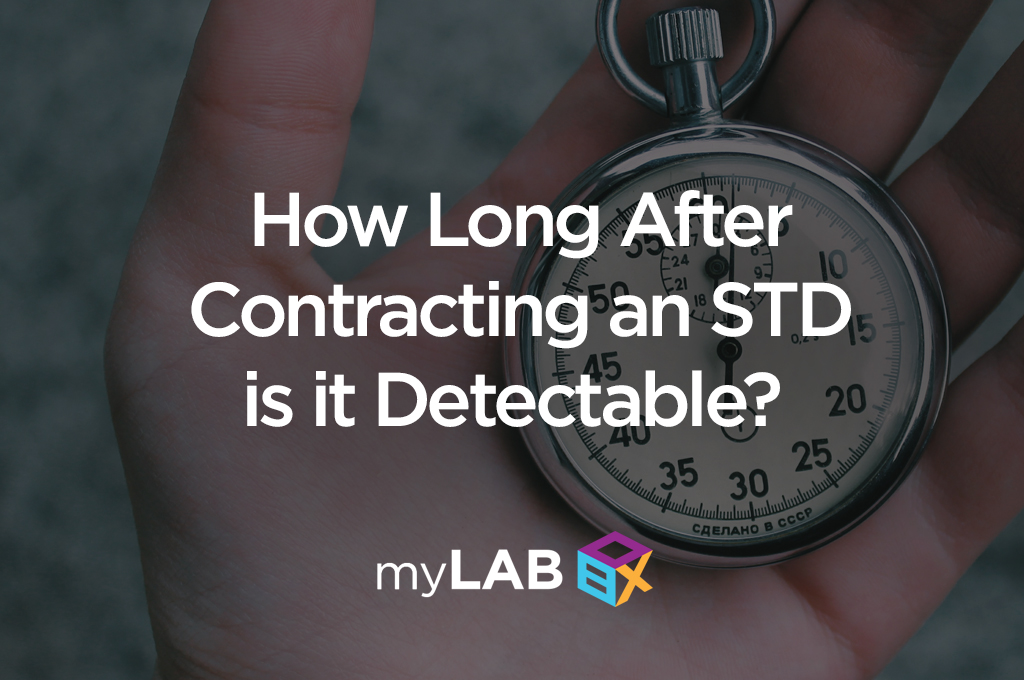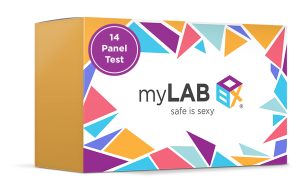Can STD Symptoms Appear Immediately?

| ❖ Free physician consultation ❖ Mail-in kits for home use ❖ Test in just 5 minutes ❖ Lab results in 2-5 days ❖ 100% pain free ❖ Enjoy free shipping |
To Order By Phone Click Here (800)856-9522
Can STD Symptoms Appear Immediately? Unfortunately, that’s a fairly complicated question.
You see, each individual sexually transmitted infection and disease is unique. As you might imagine, every infection has a different incubation period. This affects how quickly the infection can be spotted by an STD test. Making matters worse, this timeframe differs from person to person.
So how long after contracting an STD is it detectable? You can never be absolutely sure. That said, let’s go over some of the incubation periods for the most common STDs.
Chlamydia
Chlamydia’s incubation period is rather short. It can take as little as a single day, but you can detect and treat it within only five days of infection. After you’ve been diagnosed and treated, you should test again in two weeks. This is the best way to guarantee you’re fully clear of the infection.
Gonorrhea
Gonorrhea (or ‘the Clap’) typically takes about 2-6 days to incubate. The rates of this particular infection have skyrocketed in recent years. Fortunately, the treatment is a painless course of antibiotics. Like chlamydia, you should retest yourself two weeks after finishing treatment.
Syphilis
An undetected case of syphilis can become very dangerous. Over time, the side-effects can be irreversible and life-threatening. With an incubation period of 3-6 weeks, it’s important to keep a close eye on your recent sexual activity. Due to the potentially serious consequences of syphilis, you’ll want to narrow down who you caught it from… and if you have accidentally spread the infection to anyone else. Two weeks after being treated, you should be screened again.
Hepatitis C
Unlike Hepatitis A and B, Hepatitis C is both curable and treatable. That’s good news, as long as you’re properly screened! Typically, the incubation period for Hepatitis C falls within 8-9 weeks. Unlike the previous infections we’ve mentioned, experts recommend retesting for Hep C roughly 3 months after a positive test result.
Herpes
When it comes to herpes, both the oral and genital strains are extremely common. No matter which version we’re talking about, the incubation period for each is 4-6 weeks. Unlike many of other infections, retesting for herpes isn’t necessary. Once you catch it, you’ve usually got it for life. Sadly, there isn’t a cure for herpes. However, there are excellent treatment options that can severely diminish symptoms and outbreaks.
Digging Deeper: How Long After Contracting an STD is it Detectable?
In addition to those STDs we’ve just discussed, there are plenty more to choose from. To make things easier, we’ve developed this handy STD incubation period chart to help you keep track of when you should be testing.
| When To Test | When Is Retesting Necessary | |
|---|---|---|
| Chlamydia | 1-5 days | Retest 2 weeks after treatment ends |
| Gonorrhea | 2-6 days | Retest 2 weeks after treatment ends |
| Syphilis | 3-6 weeks | Retest 2 weeks after treatment ends |
| Hepatitis A | 2-7 weeks | Retesting is not necessary |
| Hepatitis B | 3-6 weeks | Retesting is not necessary |
| Hepatitis C | 8-9 weeks | Retest 3 months after a positive test to confirm result |
| Oral Herpes | 4-6 weeks | Retesting is not necessary |
| Genital Herpes | 4-6 weeks | Retesting is not necessary |
| HIV Antibody | 1-3 months | Retesting is strongly recommended after a positive result |
| HIV RNA | 9-11 days | Retesting is strongly recommended after a positive result |
Are You Sure? Testing, Re-testing and Staying Safe
As we mentioned earlier, the timeframes we’ve listed are based on national averages. For your safety and the safety of others, consider retesting to confirm your status once and for all.

Early detection is the best protection. For this reason, we suggest testing every 3-6 months if you are a sexually active adult. Get to know the symptoms of these STDs and consider testing yourself at home. Find out how it works here.
You can even test for multiple STDs at once using one of our convenient combination boxes:
- Uber Box: this 8-panel test kit screens for genital herpes, but also HIV (I & II), Hepatitis C, Herpes Simplex Type II, Syphilis, Chlamydia, Gonorrhea, and Trichomoniasis.
- Love Box: this 8-panel test screens for the same infections that are included with the Uber Box, but includes a second test so that couples can test together.
- Total Box: this comprehensive 14 panel STD test kit includes HIV (I & II), Hepatitis C, Herpes type-II, Syphilis, Chlamydia (genital, throat, + rectal), Gonorrhea (genital, throat, + rectal, Trichomoniasis and Mycoplasma genitalium with the option for women 30 years of age and older to test for HPV.
If you’ve ever been sexually active, test yourself today. After all, safe is sexy!
Reviewed by Luis Ferdinand M. Papa, MD, MHA
References
- . Hepatitis C Virus Infection. American Academy of Pediatrics. 1998.
- . Infectivity tests in syphilis. British Journal of Venereal Disease. 1969.
- . Genital herpes.. New England Journal of Medicine. May 2004.
Popular Tests

Total Box
14 Panel STD Test
In Stock – Free Shipping
$369 – $399
